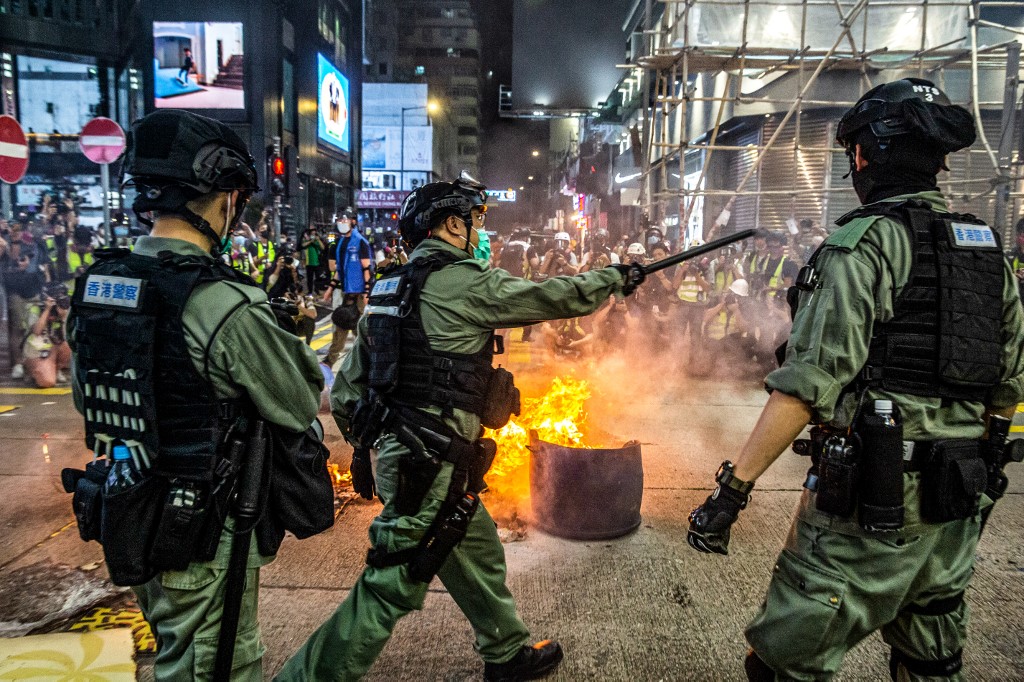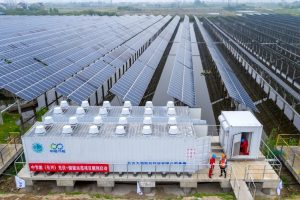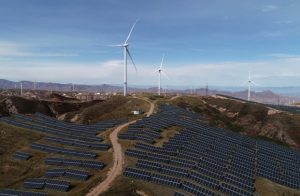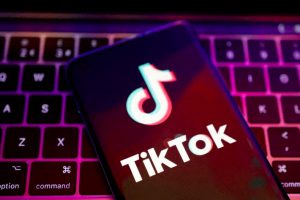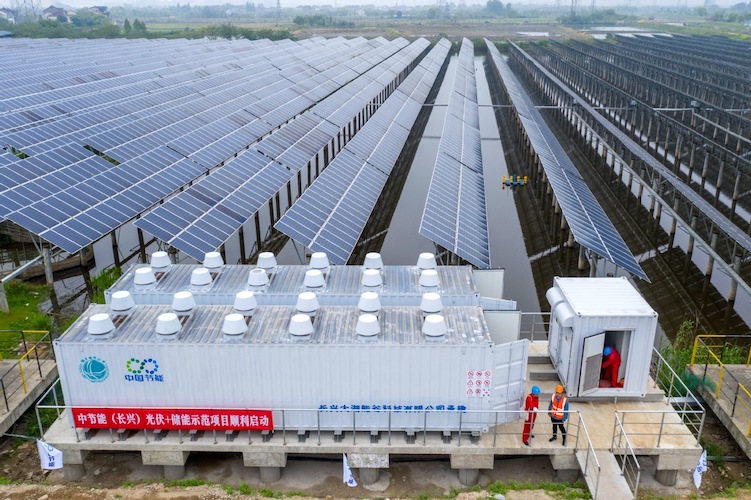(ATF) Beijing passed a new national security law for Hong Kong on Thursday hours after US Secretary of State Mike Pompeo revoked the territory’s special status under US law – a move which some say could jeopardise its future as a global financial hub.
The national security law is targeted at combatting secession, subversion, terrorism and foreign interference, but critics say it will hit Hong Kongers’ special rights and freedoms.
The move opens the way for the city to be stripped of trade privileges, amid US accusations that China is trampling on the territory’s autonomy. That means that Hong Kong could lose benefits such as lower tariffs compared with those applicable to the mainland with the world’s largest economy.
However, it will have little impact in the short term.
Ratings downgrades
“The implications for merchandise trade are actually very modest in their implications for the Hong Kong economy. 99% of Hong Kong exports to the US are re-exports from a third economy – mostly China – and are already taxed in the US on the basis of origin, not as Hong Kong goods,” Michael Spencer, chief economist at Deutsche Bank, said.
But he said there could be other implications for Hong Kong’s rating by the three global rating agencies, which have rated it 1-3 notches higher than China, implying the differential could change.
Global rating agency Fitch has, in the last nine months, taken two negative rating actions on Hong Kong, the most recent of which resulted in a downgrade of its ratings to AA-/Stable in April 2020.
“Among the principal justifications of these rating actions was the view that rising economic, financial, and socio-political linkages with the mainland justified a closer rating differential between Hong Kong and China (A+/Stable). With the ratings now one-notch apart, we believe this sufficiently captures Hong Kong’s gradual integration into China’s national governance system,” Andrew Fennell said, in an emailed statement to Asia Times Financial.
“A signal from the US of a possible change in its longstanding policy towards Hong Kong could heighten uncertainty and dampen investor sentiment, but on its own is unlikely to introduce further downward rating pressure insofar as we remain confident the territory will retain a high degree of autonomy over its most salient macro-institutional features, such as an independently managed currency, fiscal framework, financial regulatory bodies, and the foundations of its business environment.”
Global rating agency S&P Global declined to comment and Moody’s did not respond to a request for comment.
There could be implications for global benchmarks as well, Spencer said.
“Hong Kong is in the MSCI World index, for example, along with other developed markets. China is in the emerging markets index. Should Hong Kong be reclassified as an emerging market, along with Shanghai and Shenzhen, a very large share of capital invested in the Hong Kong market will have to leave,” he said.
But if Hong Kong continued to show traits of other Chinese cities over the long term it would lose its lustre as a global financial hub, analysts said.
“The short-term economic damage would be manageable, but it would accelerate the erosion of Hong Kong’s status as a international business centre,” said Mark Williams, Julian Evans-Pritchard, and Martin Lynge Rasmussen, economists at Capital Economics. They said that the city would lose access to sensitive US technology.
HK ‘will be badly hit’
Michael Every, head of Asia-Pacific financial markets research at Rabobank, said the impact would be negative given that Trump was unlikely to cede ground.
“Hong Kong is going to be very badly hit by this action – at least as an international banking centre,” he said in an emailed comment to Asia Times Financial, while adding that as a Chinese city it may still fare OK in the longer run, although that is not the same thing.
“It remains to be seen what the US will do but given the rapid geopolitical escalation from both sides, the bipartisan US support for action, the need for Trump to not look weak on China, and the fact Beijing seems likely to shrug off token measures, the balance of risks is for a very strong set of sanctions that try to target USD (dollar) usage by Chinese firms. Probably there would also be a long lead-in time, say 120 days, to give time for negotiation too.”
Under legislation passed last year to support Hong Kong’s pro-democracy protesters, the US administration must certify annually that the city still enjoys the freedoms promised by Beijing when it negotiated with Britain to take back the colony in 1997.
“No reasonable person can assert today that Hong Kong maintains a high degree of autonomy from China, given facts on the ground,” Secretary of State Mike Pompeo said, adding that the trade hub “does not continue to warrant” its special status.
Trump to decide
President Donald Trump will ultimately decide which actions to take, David Stilwell, the top State Department official for East Asia, said.
“The steps will be considered and they will be as targeted as possible to change behaviour,” Stilwell told reporters, while acknowledging it was unlikely Beijing would change course.
He said the United States did not want to hurt the people of Hong Kong, adding: “This decision was made by the government in Beijing, and not by the US.”
China’s treatment of Hong Kong has provoked rare bipartisan support during the divisive tumult of the Trump administration in the lead-up to a presidential election in November.
“The United States must take a stand against China’s crackdown in Hong Kong,” the campaign office for Democratic rival Joe Biden said, welcoming Pompeo’s announcement.
Financial markets in Hong Kong reacted negatively, with the stock market under-performing the region. The benchmark Hang Seng Index fell 0.72% on a day when the region’s major indexes, including mainland China’s CSI300 benchmark, rose.
Joshua Wong, a prominent pro-democracy activist who has lobbied for trade sanctions, said Beijing could not expect foreign countries to ignore what is happening to such an important global trade hub.
“Hong Kong is not just a Chinese city, it’s a global metropolis where the international community is a stakeholder,” he told reporters.
But Holden Chow, a pro-Beijing lawmaker, said Beijing’s national security laws would make the city safer for businesses after last year’s unrest.
“The United States should not intervene in our internal affairs and should stop intimidating us,” he said.
Anthem law
Washington’s decision came as fresh protests broke out in Hong Kong on Wednesday – this time over another controversial proposed law that criminalises insults to China’s national anthem with up to three years in jail.
Police surrounded the city’s legislature where the bill was being debated, fired pepper ball rounds at protesters and arrested more than 300 people, mostly for unlawful assembly.
“It’s like a de facto curfew now,” Nathan Law, a prominent pro-democracy advocate, said. “I think the government has to understand why people are really angry.”
China is determined to avoid a repeat of months of massive protests last year, triggered by an unsuccessful bid to fast-track extraditions to the mainland, during which the Hong Kong legislature was trashed by demonstrators.
Growing unrest
Under the “One country, two systems” model agreed before the city’s return from Britain to China, Hong Kong is supposed to be guaranteed certain liberties until 2047 that are denied to those on the mainland.
The mini-constitution that has governed Hong Kong’s affairs since the handover obliges the territory’s authorities to enact national security laws. But an effort to do so in 2003 was shelved after huge protests by Hong Kongers.
China is motivated by fear of a younger Hong Kong generation that “does not agree with the political system of the Communist Party,” Hua Po, an independent political commentator based in Beijing, said.
“If they lose control over Hong Kong, the impact on the Chinese mainland will be huge,” Hua said.
Beijing has been infuriated by Hong Kongers – especially football fans – booing the national anthem to signal dissatisfaction with China.
Beijing refuses emergency UN meeting
Washington on Wednesday requested an emergency UN meeting over a controversial security law China has proposed for Hong Kong, but Beijing refused to allow it to proceed, according to US diplomats.
The US spelled out its desire for the Security Council session, saying it was “deeply concerned” by Beijing’s move, which would ban “sedition” and other perceived offences in the international finance hub.
Hong Kong activists say the proposed law effectively abolishes the basic freedoms enjoyed in the city since it was returned to China by the British 23 years ago.
It will “fundamentally undermine Hong Kong’s high degree of autonomy and freedoms as guaranteed under the Sino-British Joint Declaration of 1984, which was registered with the UN as a legally binding treaty,” Washington’s UN mission said in a statement.
“This is a matter of urgent global concern that implicates international peace and security,” the statement continued.
But, it said, China has “has refused to allow this virtual meeting to proceed.”
Under new coronavirus-era procedures, Security Council video-conferences must be agreed upon by all 15 members, though normally a meeting can only be contested if a member convinces eight others to join the protest in a procedural vote.
“This is another example of the Chinese Communist Party’s fear of transparency and international accountability for its actions,” the US statement said.
China’s ambassador to the UN Zhang Jun responded in a tweet on Wednesday evening, saying the US request was “baseless.”
“Legislation on national security for Hong Kong is purely China’s internal affairs,” he said. “It has nothing to do with the mandate of the Security Council.”
Beijing’s National People’s Congress passed the law on Thursday afternoon, bypassing Hong Kong’s own lawmaking body.
The US had already announced earlier Wednesday that Hong Kong would no longer enjoy the autonomy promised by China under US law, opening the door to potential trade retaliation.
Congress passes Uighur rights bill
Meanwhile, the US Congress on Wednesday voted to open the way to sanctions against Chinese officials over the mass incarceration of Uighurs and other Muslim minorities in western Xinjiang province.
The House of Representatives voted 413-1 to back the final version of the Uighur Human Rights Act, which has already angered Beijing.
President Donald Trump can sign or veto the bill, but Congress easily has the votes to override him if he rejects it.
with reporting by AFP




